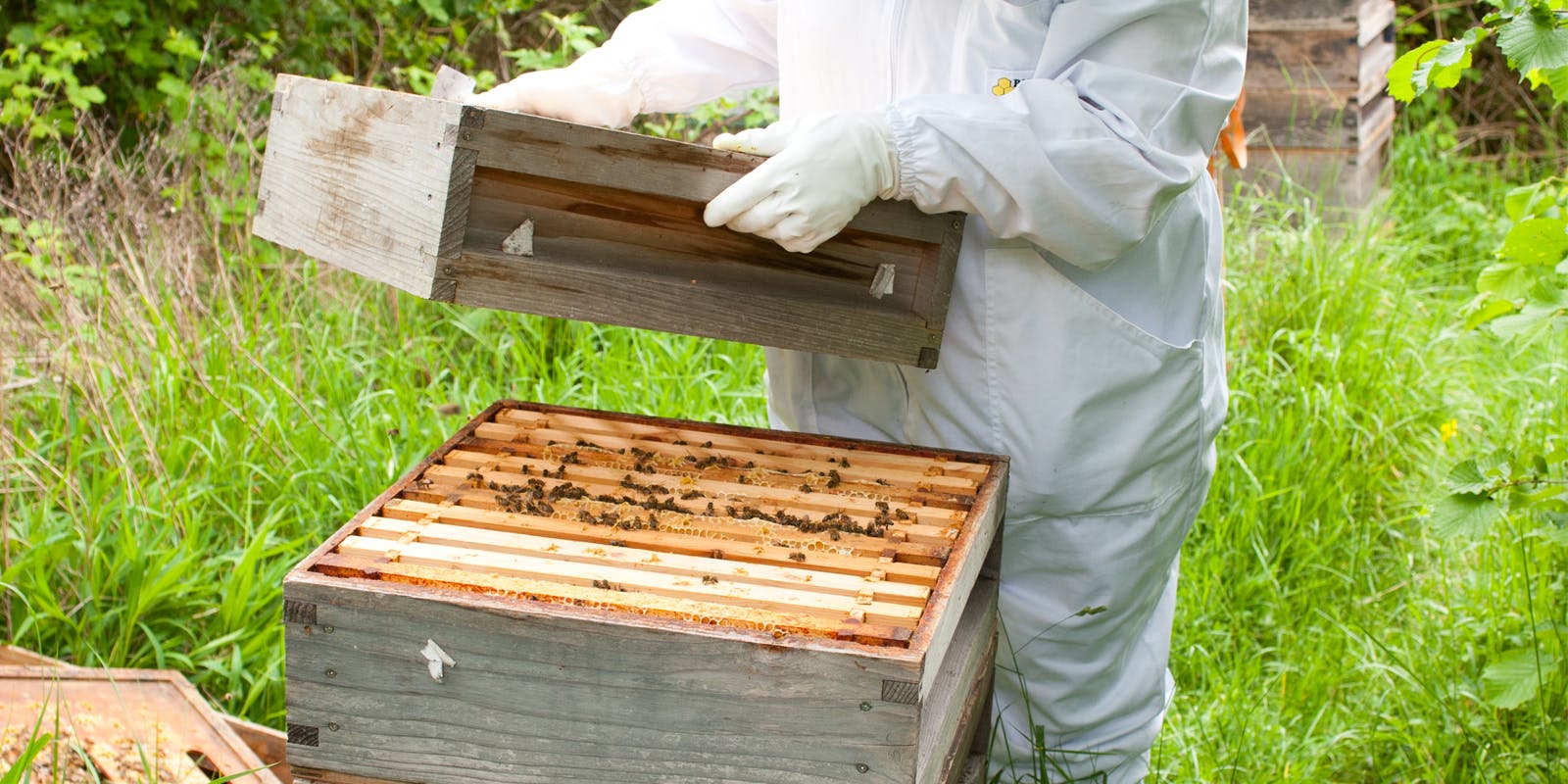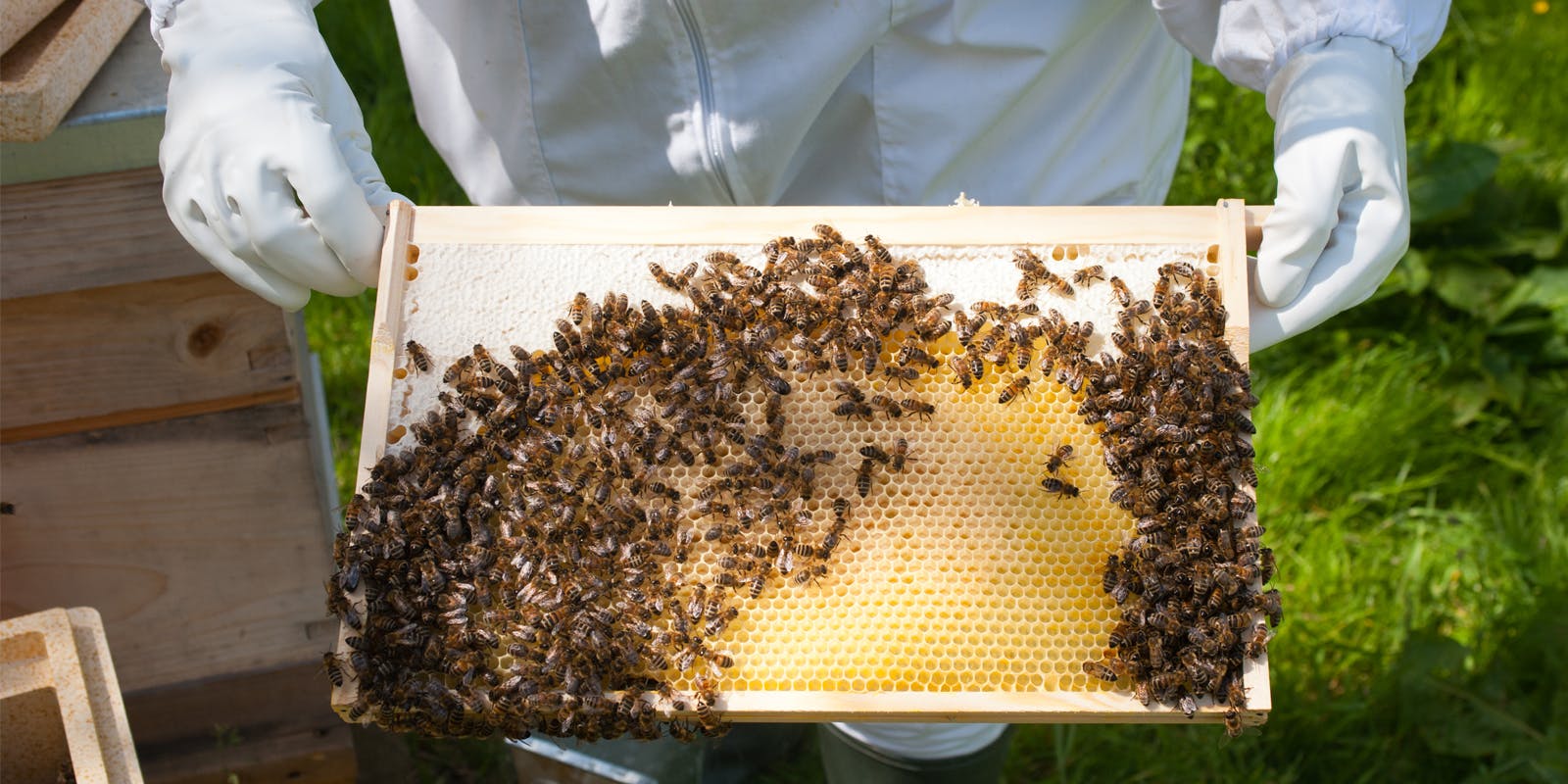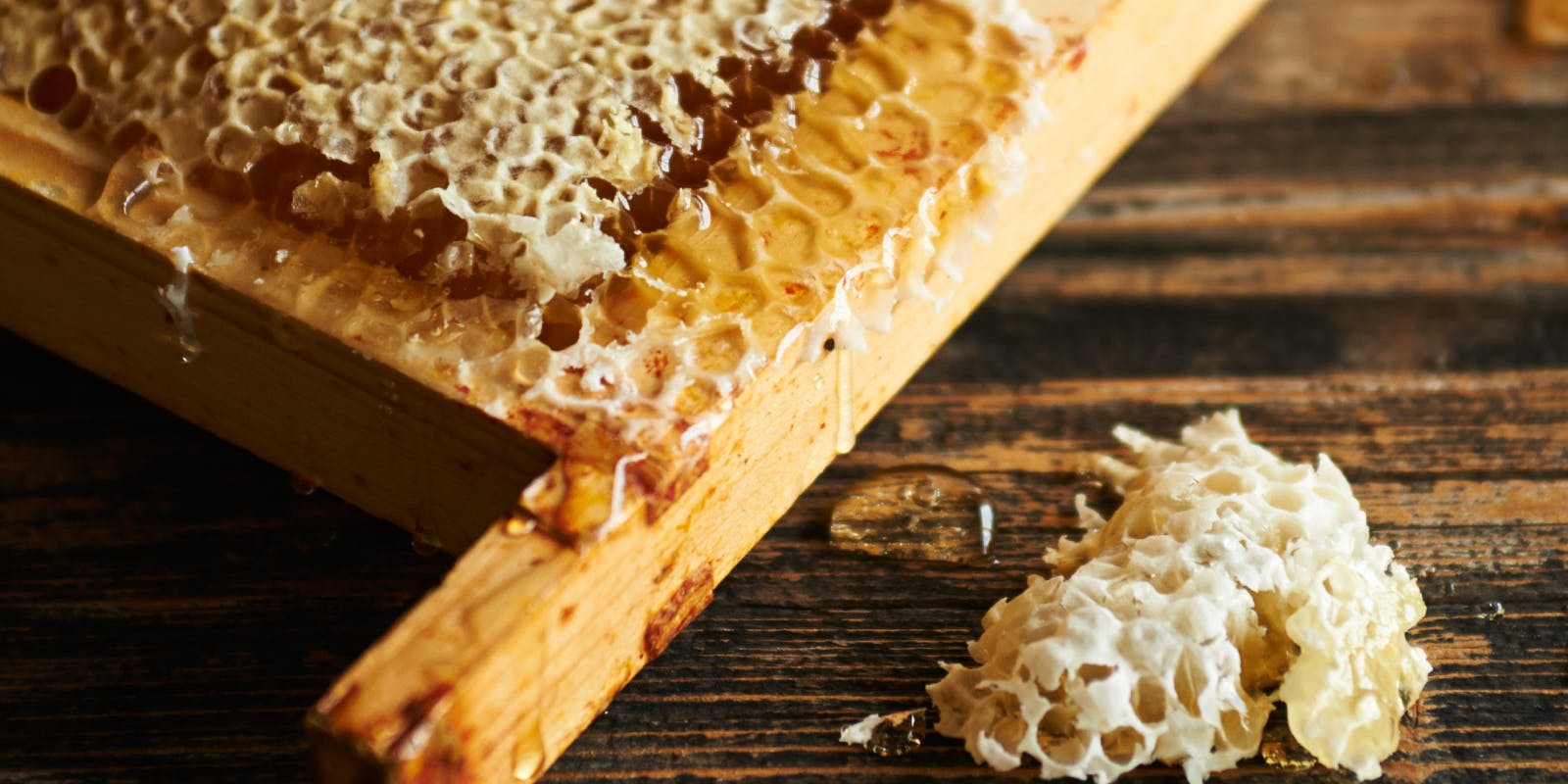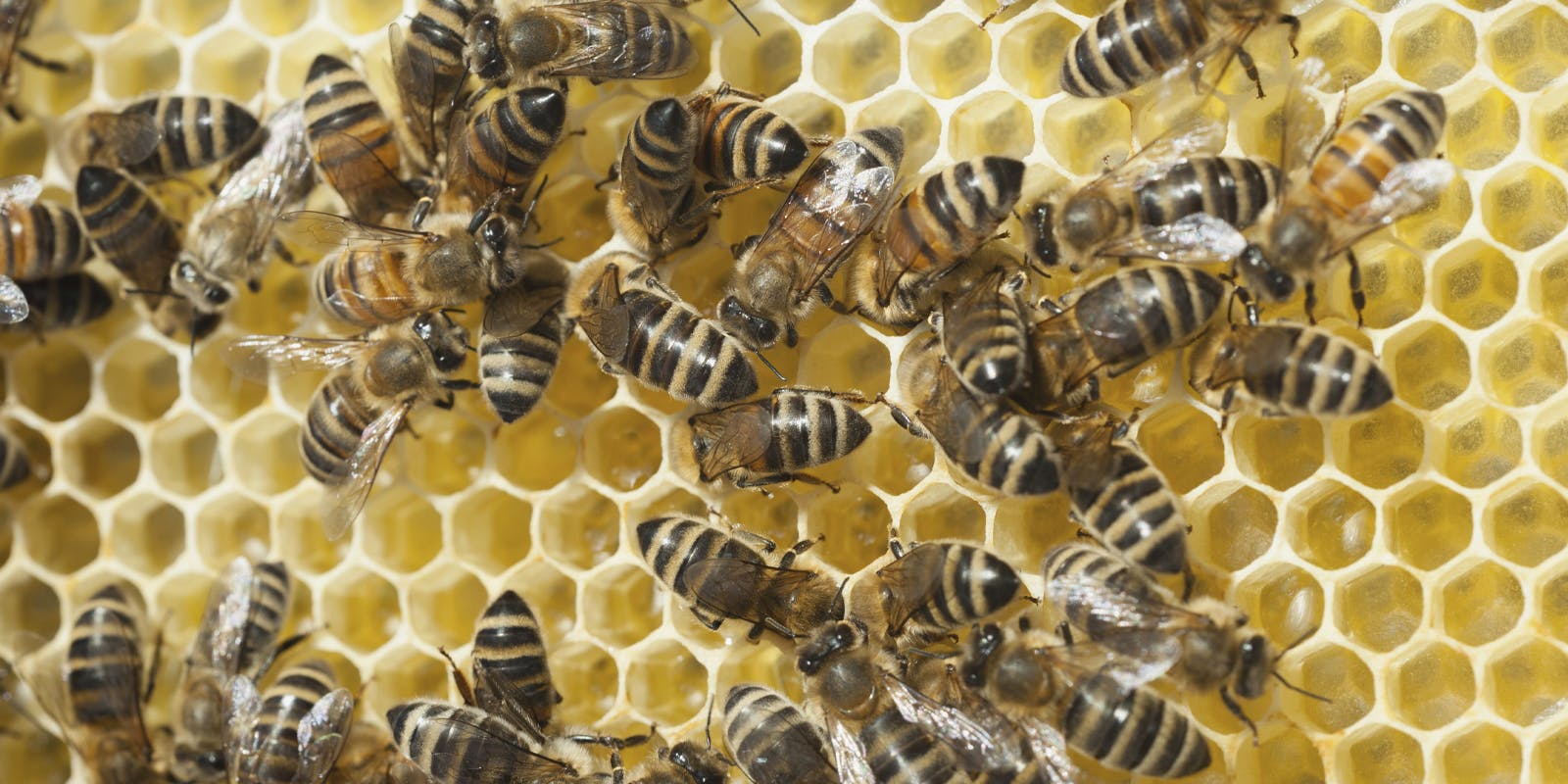To celebrate Bee Awareness Week, gain some insight on what it takes to be a beekeper, from DK's A Slice of Organic Life.
Bees exist in almost every part of the world and are one of the most important of all insects – not only is their honey highly prized and their beeswax useful in many ways, they also play a crucial role in pollinating plants and generating richer crops of fruit and vegetables.
Working with a community of bees offers an absorbing and unique insight into the annual cycles and workings of the natural world. But, before you start keeping bees, it’s important to understand the annual life cycle of bees and the tasks you will need to perform as a beekeeper.

Early spring: The queen bee starts to lay eggs in August. The honey stores in the hive will be running low after the winter because – despite the emergence of spring flowers – nectar and pollen are in very short supply and the bees have been feeding on their stored honey over winter. Fill the bees’ feeder with sugar syrup, if necessary, to supplement the natural nectar around.
Late spring: There’s a rapid increase in the brood (bee larvae). The bees fly on fine warm days to gather nectar and pollen from the early blossoms. This is the time to add additional ‘supers’: boxes with spare frames inside that provide more space to store honey. To stop the queen from laying eggs in the super, you can insert a queen excluder, which is a mesh layer that prevents her moving from the brood box into the super.
Summer: Pollen and nectar are in abundant supply for the bees, so the bees are at their busiest in summer. This is also the busiest season for a beekeeper, as the hive needs to be checked fortnightly, and supers need to be added and removed as necessary. The main skill of beekeeping, which is especially important in summer, is to prevent ‘swarming’ – when a new queen is raised (by the existing queen), leaving the hive, taking possibly more than half of the colony’s bees with her. This happens when the bees detect that the hive is becoming too cramped. If the hive is planning to swarm, you will detect queen cells: these cells are long and pointed compared to normal comb cells, and are often hidden in corners and difficult to find. Any queen cups (empty queen cells built in preparation for queen larvae) and cells you find should be destroyed by squashing them with a hive tool. This will stop the bees from swarming (for now). By late summer the supers are full of honey; watch out for wasps trying to rob the hive.

Autumn: The bees are past swarming by this time, and the beekeeper can begin to relax and harvest the honey. Once you have removed the surplus honey stores, leave 10–14kg (or approximately six full frames) for
the bees to feed on over winter. Check that the queen is present and the colony is healthy before packing down their hive for winter.
Winter: After collecting the last of the autumn nectar, the bees remain in the hive. The drone bees are expelled from the hive to die in the cold, as they are no longer useful and the honey store is prioritised for the queen and the worker bees. The bees collect in a mass in the centre of the hive, close to their food supply of honey. Once the bees have shut up shop in early winter, don’t disturb them until spring.














